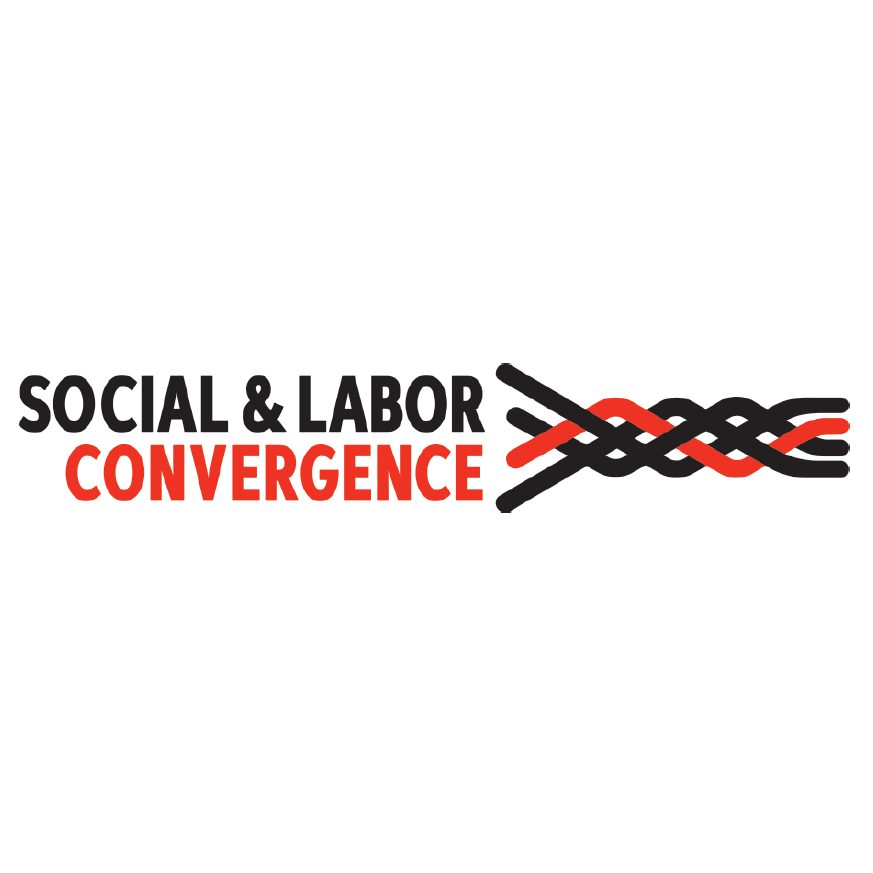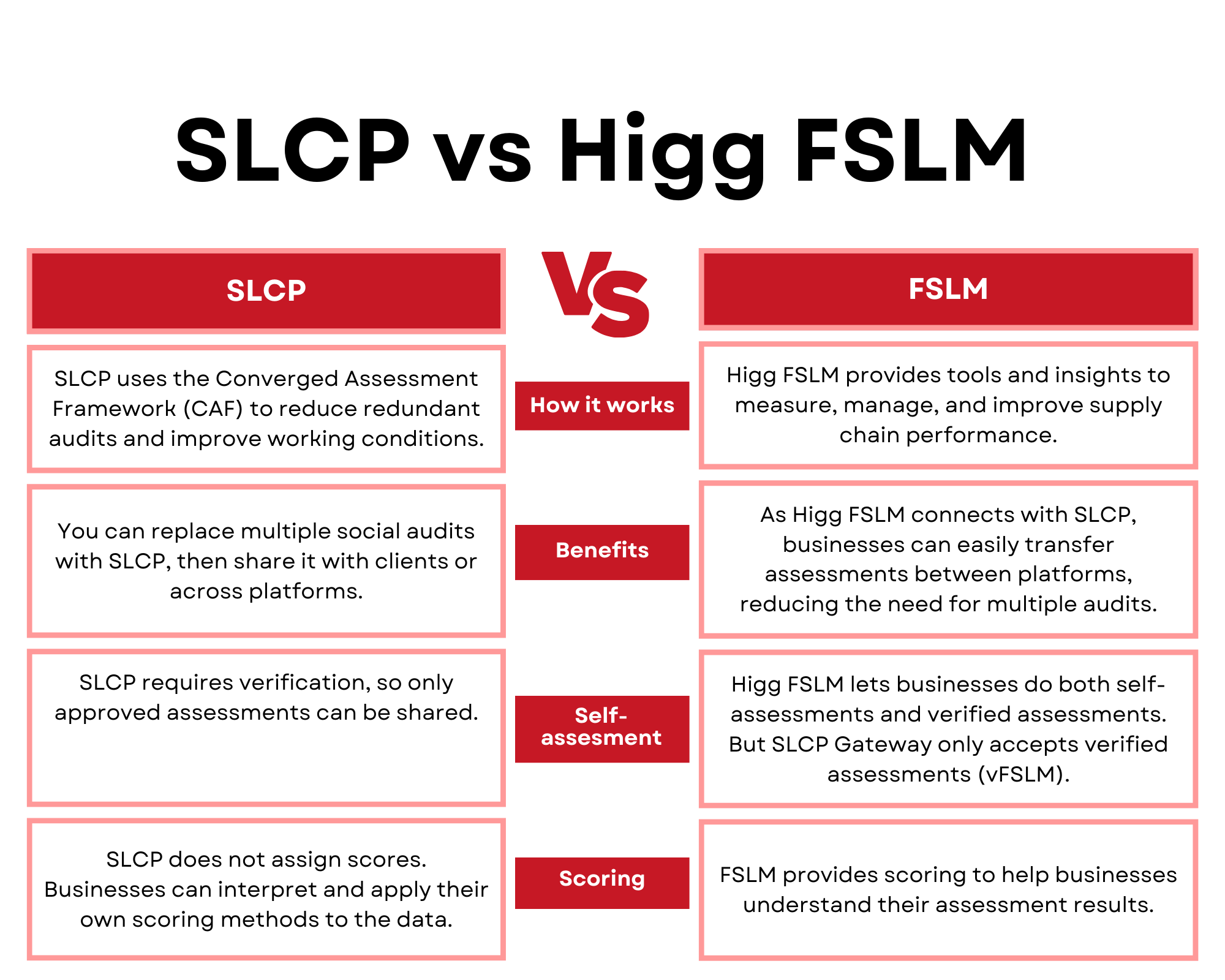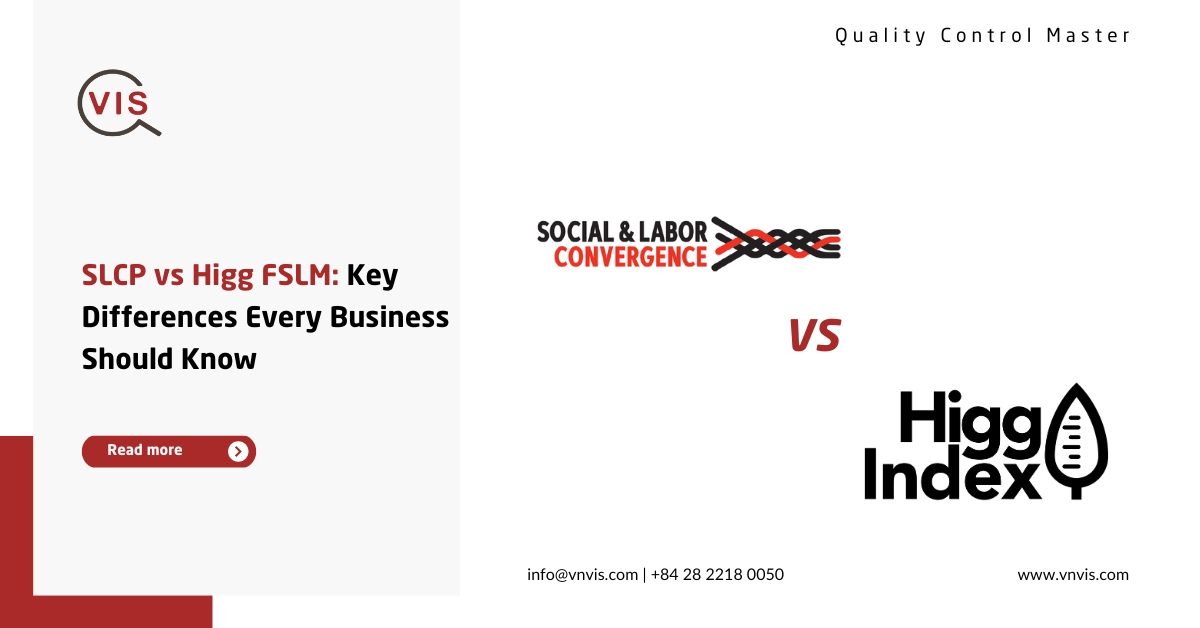As a business, demonstrating that your supply chain upholds the highest standards in labor practices is essential. At the same time, it’s equally important to avoid audit fatigue by eliminating the need to conduct a new audit for every new partner.
Fortunately, two established frameworks help organizations validate their commitment to responsible labor practices while minimizing redundant audits: the Social & Labor Convergence Program (SLCP) and the Higg Facility Social & Labor Module (FSLM).
SLCP supports factories and brands in reducing audit duplication through its Converged Assessment Framework (CAF). Meanwhile, Higg FSLM builds on a similar foundation but incorporates scoring and performance tracking capabilities.
In this article, we outline the key differences between SLCP and Higg FSLM, helping you determine which framework is most suitable for your business.
What is SLCP?

SLCP was established to combat audit fatigue across the industry. With a standardized assessment system, it eliminates the need for companies to conduct multiple audits for different business partners. Rather than operating its own platform, SLCP collaborates with accredited third-party platforms—referred to as Accredited Hosts—where facilities complete their assessments. Verified assessments are then stored in the SLCP Gateway, a centralized system that facilitates easy sharing of results between businesses.
What is Higg FSLM?

The Higg Facility Social & Labor Module (FSLM) was developed by the Sustainable Apparel Coalition (SAC) to support companies in evaluating and enhancing social and labor conditions within their supply chains. It uses SLCP’s Converged Assessment Framework (CAF), ensuring standardization across assessments. However, unlike SLCP, Higg FSLM introduces a scoring system that allows facilities to monitor performance and set measurable improvement goals.
How Do SLCP and Higg FSLM Differ?
While SLCP and Higg FSLM are based on the same assessment framework, they differ in a few important ways.

SLCP provides a single Converged Assessment Framework that companies can utilize and share. However, SLCP does not offer its own platform—assessments must be conducted and verified through an Accredited Host.
Furthermore, SLCP does not assign scores to assessments, leaving businesses the flexibility to interpret results based on their own internal standards. One of SLCP’s primary advantages is the ability to seamlessly share verified data across platforms or directly with clients.
On the other hand, Higg FSLM is a platform-based solution built upon SLCP’s framework, but with a key distinction: it includes a scoring mechanism to help organizations track progress. Higg FSLM supports both self-assessments and verified assessments, though only the latter are eligible for sharing through the SLCP Gateway.
Because of its integration with SLCP, Higg FSLM enables organizations to transfer and share assessments across systems, reducing duplication. For businesses that need to meet Higg FSLM membership criteria, verified SLCP assessments can be used to ensure accurate and reliable supply chain data.




Related Posts